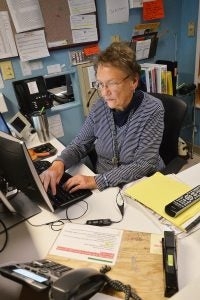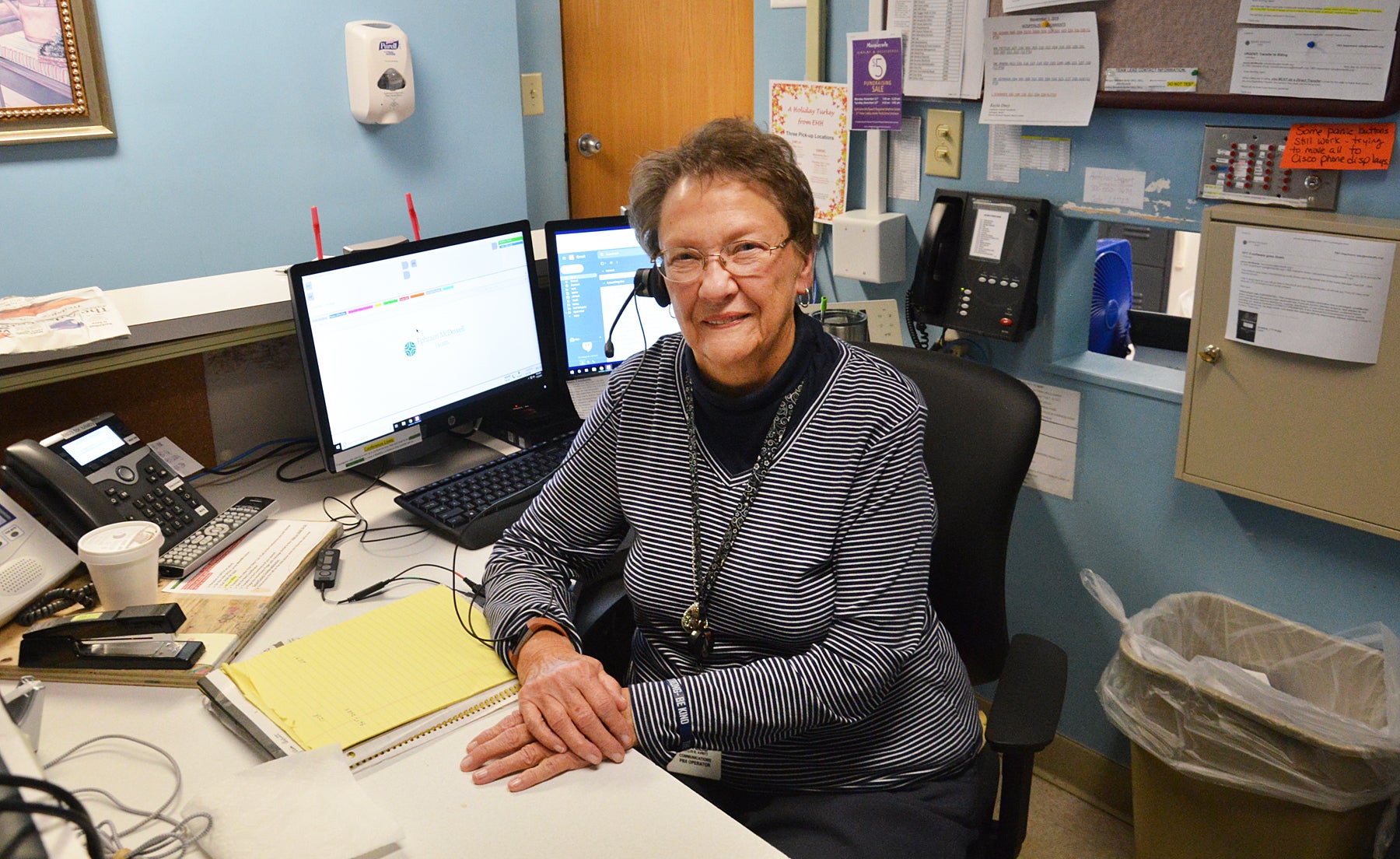Avritt has worked as telephone operator for 62 years
Published 2:36 pm Tuesday, November 26, 2019
“Good morning, Ephraim McDowell Health, how may I help you?” is a phrase that Phyllis Avritt says hundreds of times a day as one of the telephone operators for the health care system.
Tucked away in a cozy office on the first floor of the North building, incoming calls constantly keep the phone lines beeping. “There are three different lines that calls come in on. Sometimes they’re all lit up at one time,” Avritt said.
She, along with a second operator, answer phone calls for Ephraim McDowell Regional Medical Center, Fort Logan Hospital and James B. Haggin Hospital for both outside calls and calls from within the facilities during weekdays.
She said most people don’t even know where the operator’s office is located. “They think the operators are out front.”
 Every day when coming to work, Avritt, who is 81, walks from her car and up the stairs and starts answering calls at 5 a.m. “Some days are busier than others,” she said. Certain hours are also more hectic. She’s been known to answer more than 100 calls in one hour. “It just depends on what kind of calls you have. In-depth calls take longer.”
Every day when coming to work, Avritt, who is 81, walks from her car and up the stairs and starts answering calls at 5 a.m. “Some days are busier than others,” she said. Certain hours are also more hectic. She’s been known to answer more than 100 calls in one hour. “It just depends on what kind of calls you have. In-depth calls take longer.”
Sometimes all she has to do is just ring a number for the caller, or page someone. Other times she has to talk longer with the caller to find out exactly what they need and where they want to call.
“Some callers you get used to and kind of know what they want, but they don’t know what they want,” Avritt said.
But not everyone wants to contact a specific person or clinic. Once, a frequent caller just wanted to know how to spell words, she said.
The operators also are crucial when a patient is being transferred to another facility. They are responsible for contacting the admitting physician, the hospital and discharging doctor.
“There are all these little steps that have to be completed, and all connected in just the right way,” she said.
Operators also watch for alarms on a device called the “notifier” so they can contact the correct departments for assistance. And they announce over the intercom specific codes for when specialized emergency help is needed for patients.
After a long day of wearing a headset, talking with callers and reading computer screens to place calls, Avritt said, “I don’t like the phone at home.”
Avritt has seen many changes and technology advancements with phone systems during her 62 years as a telephone operator — 33 years with the phone company, and 29 years with EMH.
Avritt grew up in Crab Orchard and had never even used a phone when she got the job with South Central Bell. “I came here without knowing anyone, right out of high school. I was 18 and put in my application and started working two weeks before graduation,” Avritt said. “It was a scary thing for a country girl.”
Back then, telephone operators used colored wires to plug into a switchboard with blinking lights. “Each color told you how many rings to ring the phone,” and there were party lines to contend with.
Avritt has adapted to each new phase of telephone technology during her career. The most recent was a new software computer system that she’s been learning. She said she doesn’t take as many notes or refer to them as much now as she did just a few weeks ago, but it has been a bit difficult.
She said, however, that her supervisor has been a great to help get her to that point.
“I’ve enjoyed my job. God has blessed me to be 81 and still working with my right mind,” Avritt said, laughing. “I pray when I leave here every day, that I’ve done some good for somebody.”







